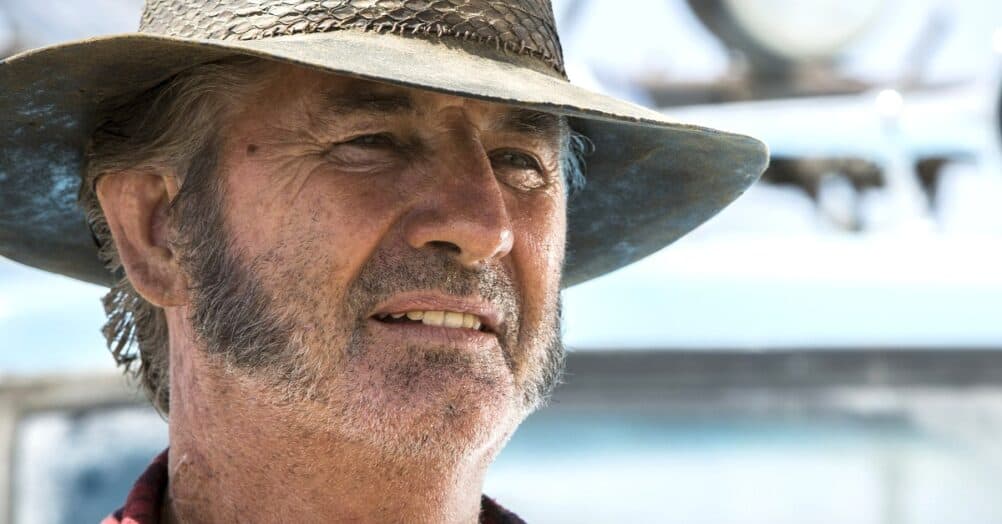Plot: From his early days as a jazz pianist to his 54 Oscar® nominations and five wins, the documentary takes an in-depth look at Williams’ countless contributions to film including many iconic franchises, as well as his music for the concert stage and his impact on popular culture. The film features interviews with artists and filmmakers whose lives have been touched by his timeless music.
Review: There is no one like John Williams. From Star Wars to Superman to Jurassic Park to Harry Potter and beyond, Williams has left an indelible mark on the landscape of cinema and music in general. In his nineties, John Williams became synonymous with movie soundtracks thanks to his collaborations with George Lucas, Steven Spielberg, and several other filmmakers and film franchises. The new documentary Music By John Williams, directed by the composer’s longtime friend and documentarian Laurent Bouzereau, is an ode to Williams’ creative approach and how he shifted the landscape of orchestral and symphonic music in the twentieth century. With archival footage from the 1980s and interviews with contemporaries, friends, and fans, Music By John Williams is a long overdue tribute to a man who has single-handedly influenced multiple forms of media for more than half a century.
Music By John Williams is told fairly linearly, giving birth to the contemporary journey of the composer’s career. His childhood is briefly touched on as we learn about the musical career of John’s father and his mother’s penchant for song. Through some still photographs, the documentary picks up momentum during Williams’ military career and his segue into television with music for Lost in Space, Gilligan’s Island, and Kraft Suspense Theatre. The film briefly touches on Williams composing for Valley of the Dolls, Goodbye Mr. Chips, and Fiddler on the Roof but does not dive much into the two decades of work before he met Steven Spielberg. Spielberg and Williams conduct some interviews together as the movie really starts with their collaboration on The Sugarland Express and then Jaws. Williams and Spielberg’s friendship and respect for each other come through loudly and clearly as the pair eventually extends their working relationship to include George Lucas.
Because Music By John Williams is produced in collaboration with Lucasfilm, this story heavily focuses on Star Wars and Indiana Jones. Clearly, those are massively influential scores in the annals of film music, but there is a lot of attention paid to creating those themes that illustrate how Williams found the ideas for these songs. At several points, the film shows us footage from movies without Williams’ music and then with the accompaniment, which shows just how vital the themes are to the finished product. George Lucas states in the documentary that a score is fifty percent of the finished work, especially with John Williams. A heavy portion of the film also shows how the music of Jaws, Close Encounters of the Third Kind, Saving Private Ryan, and Catch Me If You Can arise from Williams’ experience in classical and jazz music.

The film also explores Williams’ work as a composer and a conductor, briefly discussing his tenure as the leader of the Boston Pops. His appointment was controversial as classical musicians looked down on film music. Through interviews with fellow composers like Thomas Newman and musicians like Itzhak Perlman, Yo-Yo Ma, and Branford Marsalis, we see the respect that all have for the effort that John Williams puts into his work. Williams writes manually, note by note, on paper rather than using synthesizers or artificial intelligence, which is impressive, especially when the film shows some of the more complex compositions he has written in his lifetime. The archival footage of Williams, filmed by Steven Spielberg, also offers an exclusive look that often gets taken for granted since modern technology chronicles the behind-the-scenes of every step of film productions.
Superman, Home Alone, Harry Potter, and other Williams scores are also explored in the documentary, but Music By John Williams benefits from the interviews of those who know the man. John Williams’ music speaks for itself, but as a father, friend, and collaborator, hearing the first-hand accounts of Kathleen Kennedy, Frank Marshall, Seth MacFarlane, Ron Howard, Ke Huy Quan, James Mangold, Chris Columbus, Kate Capshaw, Alan Silvestri, Lawrence Kasdan, David Newman, Gustavo Dudamel, and Williams’ daughter adds to the appreciation for what impact the has had on the world. Footage of Williams conducting at the Hollywood Bowl with a crowd of fans waving lightsabers is a powerful moment that I know I connected to personally, and I am sure many of you would as well. Director Laurent Bouzereau, a close friend of Williams, has made several documentaries about famous Hollywood creatives and behind-the-scenes films for Spielberg productions. His skewed perspective means this is more of a loving portrait rather than an unbiased expose, but that does not diminish the importance of the subject.
Music By John Williams is a love letter to one of, if not the greatest composers of the twentieth century. Arriving in Hollywood just as orchestral scores were on their way out, there is a case to be made that Williams’ classical approach to delivering unique, rousing, and triumphant music both for films and other forms of entertainment has been one of the most influential elements of modern cinema. At the very least, Music By John Williams is a beautifully captured tribute to the one person who created the soundtrack to my childhood and the developmental years of millions of others. For that alone, Music By John Williams is worth watching and appreciating a master who still delivers well into his ninth decade on this planet.
Music By John Williams will have a limited theatrical release as it begins streaming November 1st on Disney+.































Follow the JOBLO MOVIE NETWORK
Follow us on YOUTUBE
Follow ARROW IN THE HEAD
Follow AITH on YOUTUBE